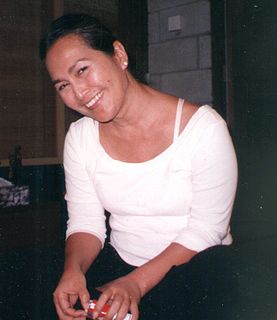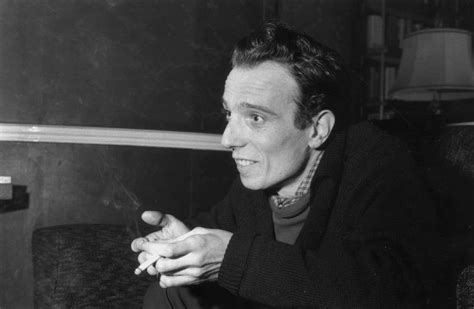A Quote by Matthew Zapruder
There is all this stuff about how sensitive poets are and how in touch with feelings, etc. they are, but really all we care about is language. At least in the initial stages of the process of writing the poem, though later other things start to come in, and a really good poem usually needs something more than just an interest in the material of language to mean anything to a reader.
Related Quotes
A successful poem says what a poet wants to say, and more, with particular finality. The remarks he makes about his poems are incidental when the poem is good, or embarrassing or absurd when it is bad and he is not permitted to say how the good poem is good, and may never know how the bad poem is bad. It is better to write about other people's poetry.
Language is the primary way we communicate with each other, and we have really strong feelings about what words mean, and about good language and bad. Those things are really based on sort of an agglutination of half-remembered rules from high school or college, and our own personal views on language and the things we grew up saying, the things we grew up being told not to say.
It's difficult to put your own bare ass out on the limb every time you sit down to write a poem. But that's really sort of the ideal. Because if we don't discover something about ourselves and our world in the making of a poem, chances are it's not going to be a very good poem. So what I'm saying is that a lot of our best poets could be better poets if they wrote less and risked more in what they do.
When people say stuff to us casually in reviews, if they write about it in a condescending way with really gendered language, that's not really about me. It used to hurt my feelings more than it does now. That's not about us as a band or me as a person. That's about how you feel about women, and that's a societal thing.
I've always been more than a little mystified by poets who seem to think talking to people as directly as possible is a bad thing. I mean, I don't want to set up a straw man here: I understand that for many poets - and for me, at times - writing truly means writing in a way that is difficult, simply because the poem is trying to grasp for something elusive. So the difficulty of the poem is just unavoidable, and not in any way artificially imposed. So "as possible" is the key part of the phrase above, I suppose.
People I know who succeed don't mind working. Those who are competent seem to like doing things well -- not stopping because they haven't accomplished what they wanted to on the first go-round. They're willing to do it twenty times, if necessary. There's an illusion that the good people can easily do something, and it's not necessarily true. They're just determined to do it right. I was impressed by hearing one of the women at Radcliffe talk about writing a poem, how many revisions a single poem sometimes has to go through -- fifty or sixty revisions to come out with a poem sixteen lines long.
I mean, what's thematic? How to put it? Going back to, like, 1980, when I started writing poetry. Language itself became an issue. I'd even think about font as an aspect of text, you know, how something looks on a page. A lot of this is the product of a very solitary existence, it's like, language, I mean, you know. A lot of time spent alone in the creation of all of this stuff.
The way to start writing isn't by writing at all. But by living. It isn't about creating something from thin air, but about documenting our personal feelings about the things that we see. Or to put it crudely, how are you going to be a storyteller if you have no story to tell? Perhaps, in the end, there are no such things as creative people; they are only sharp observers with sensitive hearts.
There's something immediate about the experience of reading a poem - whether it's the music or some other element of it - that just seems to access another part of the brain. You know, Charles Olson talks about this transfer of energy that happens between the writer and the reader of the poem. I guess there's something essential to me about acknowledging upfront the immensity of it - the difficulty of it - and even allowing that to be the subject.
I hope any poem I've ever written could stand on its own and not need to be a part of biography, critical theory or cultural studies. I don't want to give a poetry reading and have to provide the story behind the poem in order for it to make sense to an audience. I certainly don't want the poem to require a critical intermediary - a "spokescritic." I want my poems to be independently meaningful moments of power for a good reader. And that's the expectation I initially bring to other poets' writing.





































